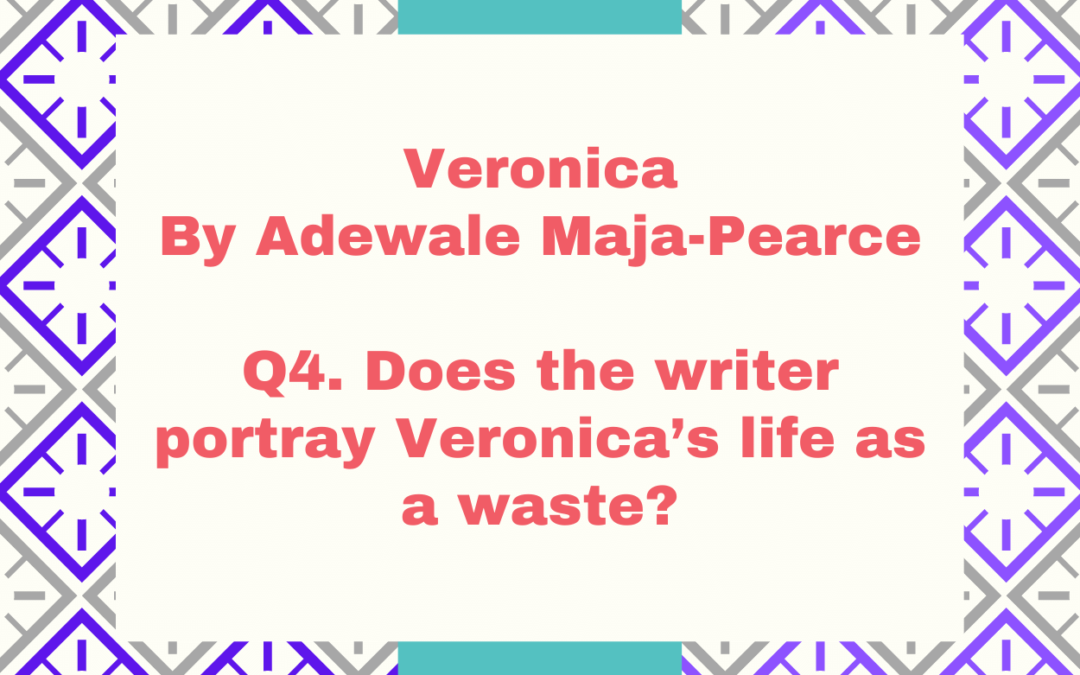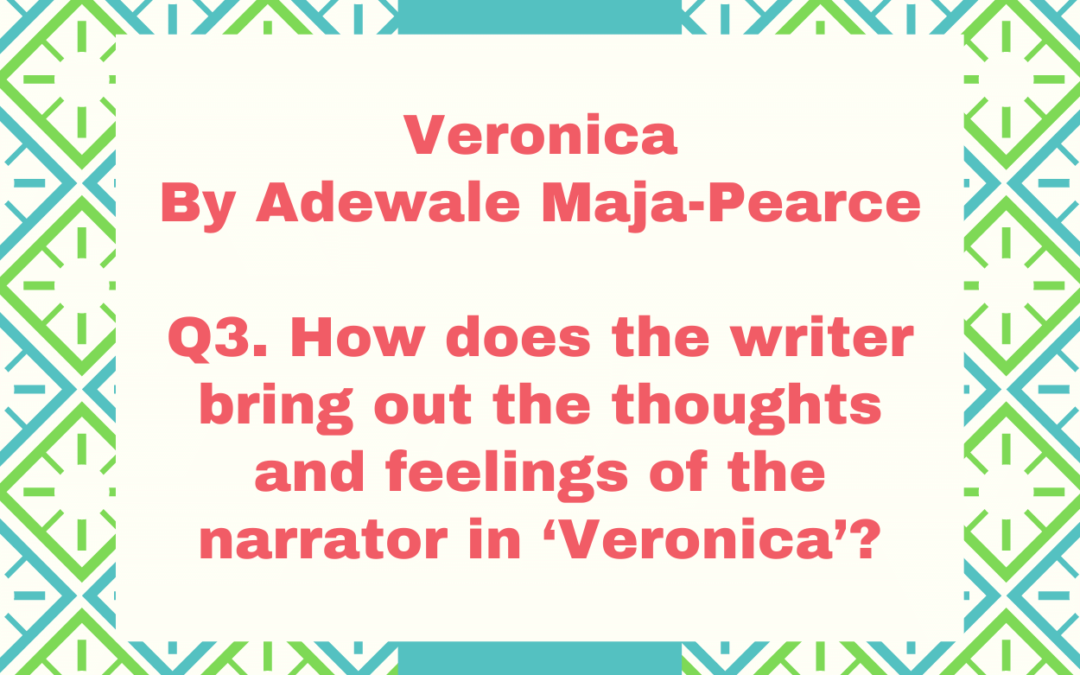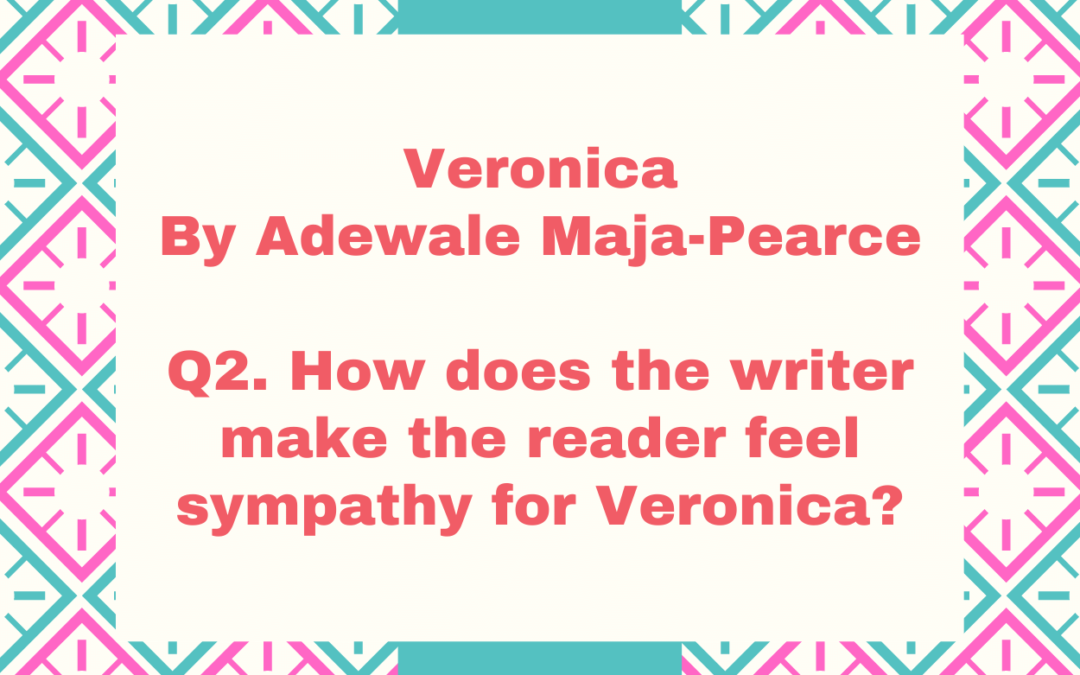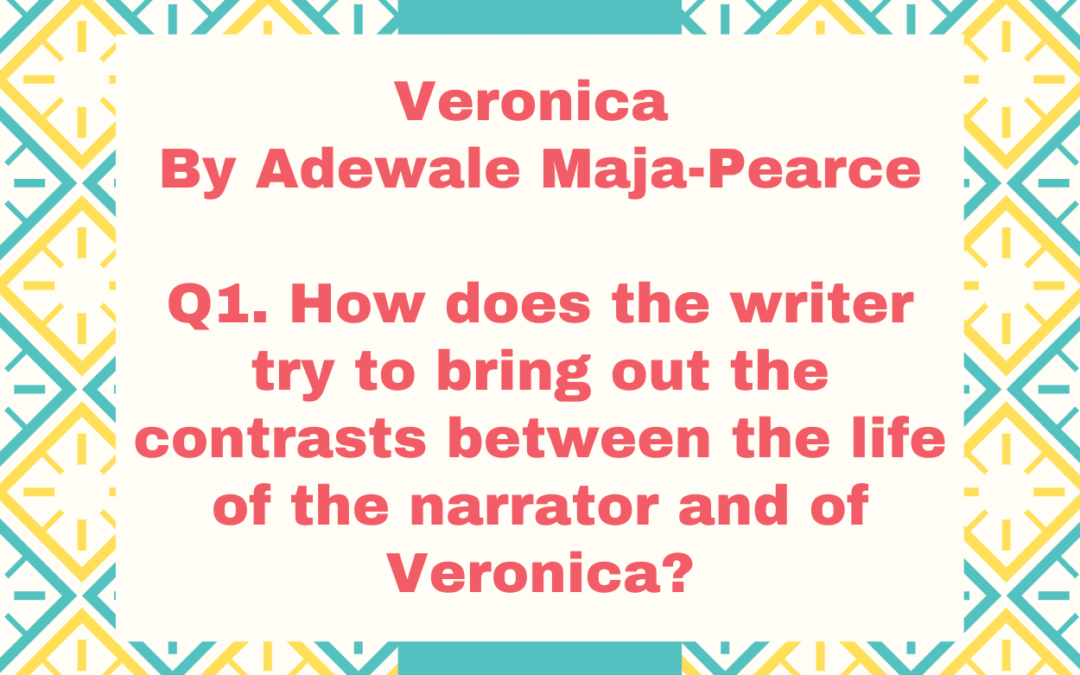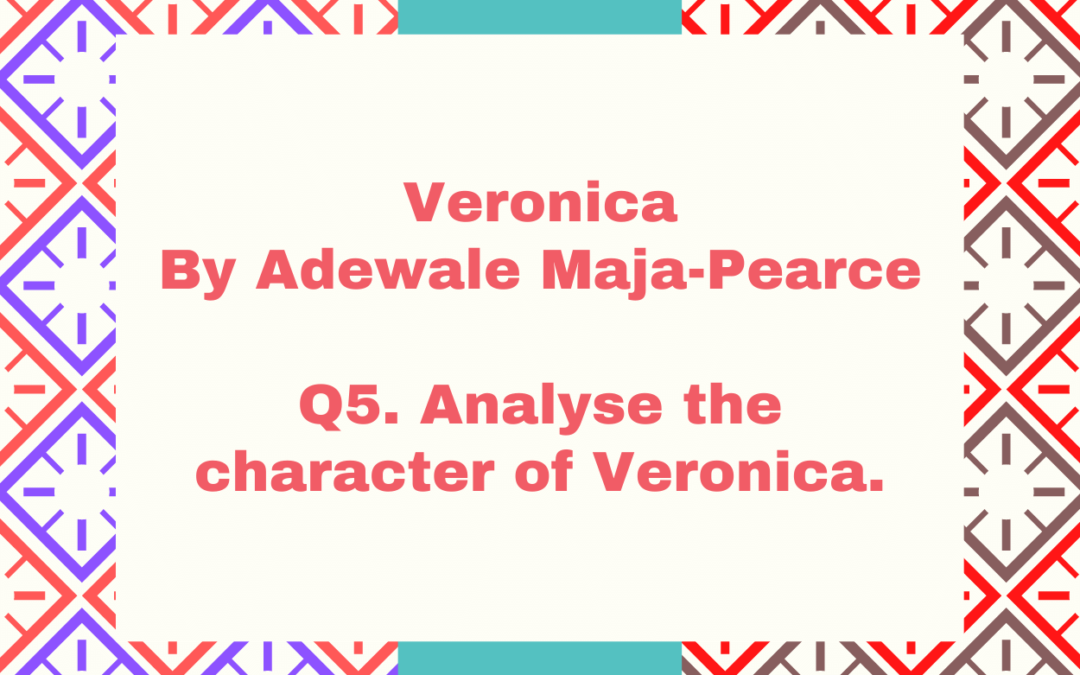
IGCSE Veronica Model Essays Question 05
Edexcel English IGCSE: Veronica
Q5. Analyse the character of Veronica.
In your answer, consider:
- her upbringing and family background;
- her attitude towards the village;
- her approach to life;
- the writer’s use of language.
You should refer closely to the passage to support your answer. You may use brief quotations.
Edexcel English IGCSE Model Essay by an Expert
In this story, everything the reader learns about Veronica is through the perspective of her successful friend, Okeke. We learn about her attitudes towards her family, her village and her life.
Veronica is loyal to her family despite her difficult upbringing. Her father is a “brute”, suggesting that he is animal-like and cruel. She has many duties towards her family, for example, the responsibility of caring for her siblings had “fallen on her”. This metaphorical language implies that this duty is a physical weight, which could crush her. Despite this struggle, Veronica is committed to her family. When Okeke encourages her to leave the village, she cites her family as a reason. When pushed for further explanation, she states “They are my family, that is enough”. Her commitment to her family is so strong that she feels it does not require explanation. Throughout her life, family gives Veronica purpose in life. When her own family dies, she feels that “there is nothing left for [her] in this world”.
The village is Veronica’s entire world. She is curious about life outside the village, as expressed in the Okeke’s hyperbolic statement that she asked “endless questions” about his school. However, she does not feel that the ‘outside world’ is for her. She states this in very simple terms, highlighting the essential difference between her and Okeke: “the city is for you, not me.” She does not give logical reasons for staying in the village, nor does she suggest that she likes it. Her reasons are intuitive, and based on a commitment to the status quo, and a sense of belonging: “my own place is here” and “this is my home”. Okeke finds this attachment unreasonable, but to Veronica it is clearly an inherent part of her existence.
Veronica’s approach to life is similarly accepting. She enjoys her friend’s ambition and is glad that he has the chance to leave the village. Okeke states that “she never seemed to envy” his life, although the use of the word “seemed” expresses some doubt regarding her true feelings. She is surprised when Okeke asks her about her life, replying “What should of happened to me?”. This shows that she doesn’t expect changes to occur in her own life, as they have done in Okeke’s. This resignation to her lot is especially poignant when Veronica queries why Okeke would try to save her life, since she believes she has nothing left to live for. In stark contrast to Okeke’s life, her entire life and death is spent in the village.
The writer allows the reader to make up their own mind about Veronica’s character. We cannot know whether she was truly satisfied with her insular and apparently inconsequential life, or whether she was simply remarkably stoic around Okeke. Either way, this account of her life is a moving reminder of the entrapment of poverty.



